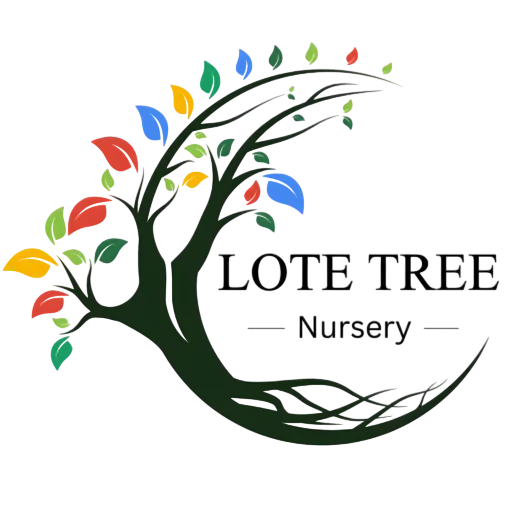Curriculum
- Physical Development:
- (PSED)
- Literacy
- Mathematics
- Understanding the World
- Expressive Arts and Design
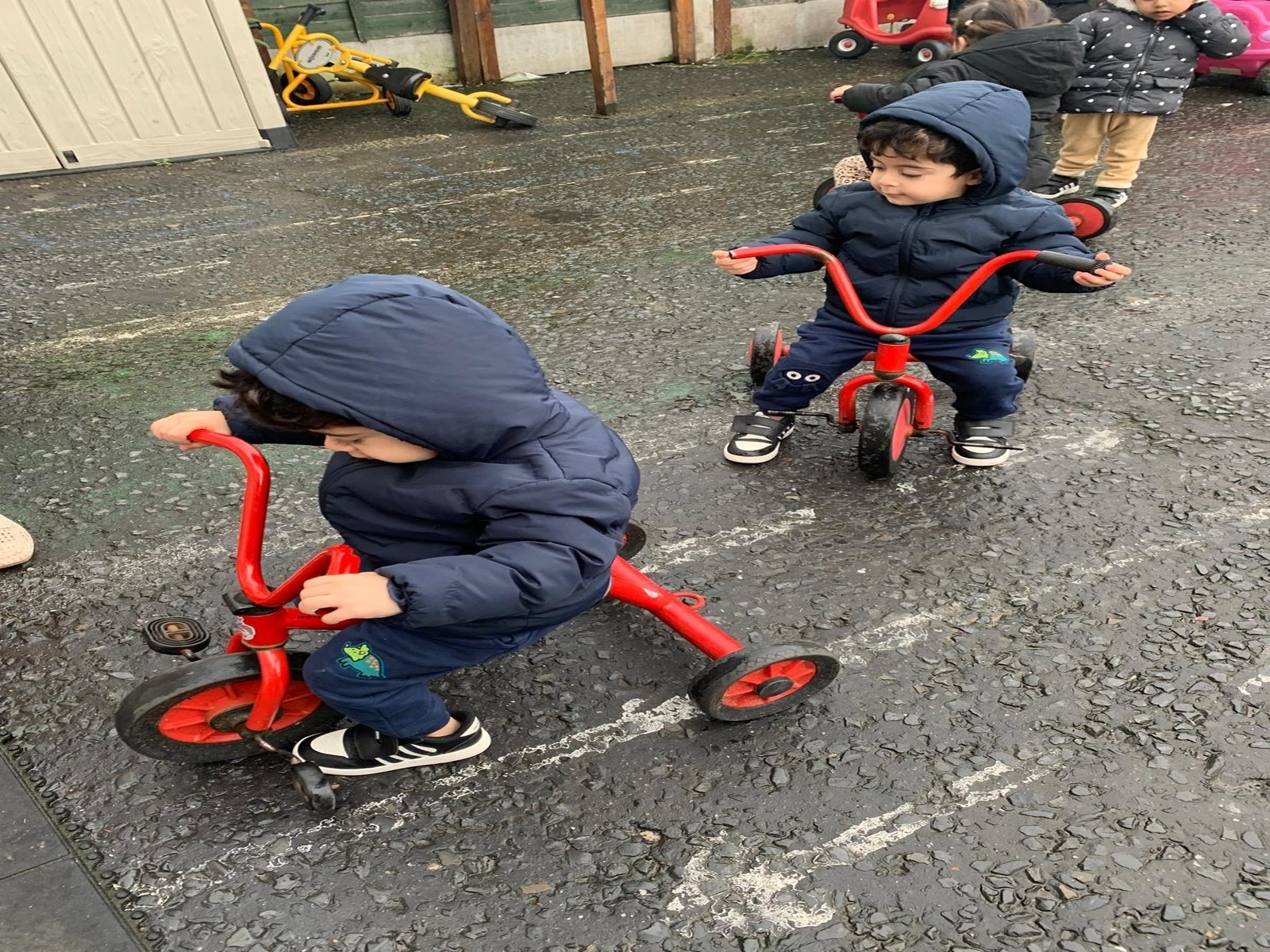
Physical Development is supported through both fine and gross motor activities. The curriculum promotes physical fitness, coordination, and overall well-being by providing opportunities for children to engage in physical play, such as running, jumping, and climbing. Outdoor play is an essential part of the daily schedule, allowing children to strengthen their muscles and develop balance, coordination, and spatial awareness. In addition, activities that improve fine motor skills—such as drawing, cutting, threading, and building with small blocks—are introduced to enhance hand-eye coordination and dexterity.
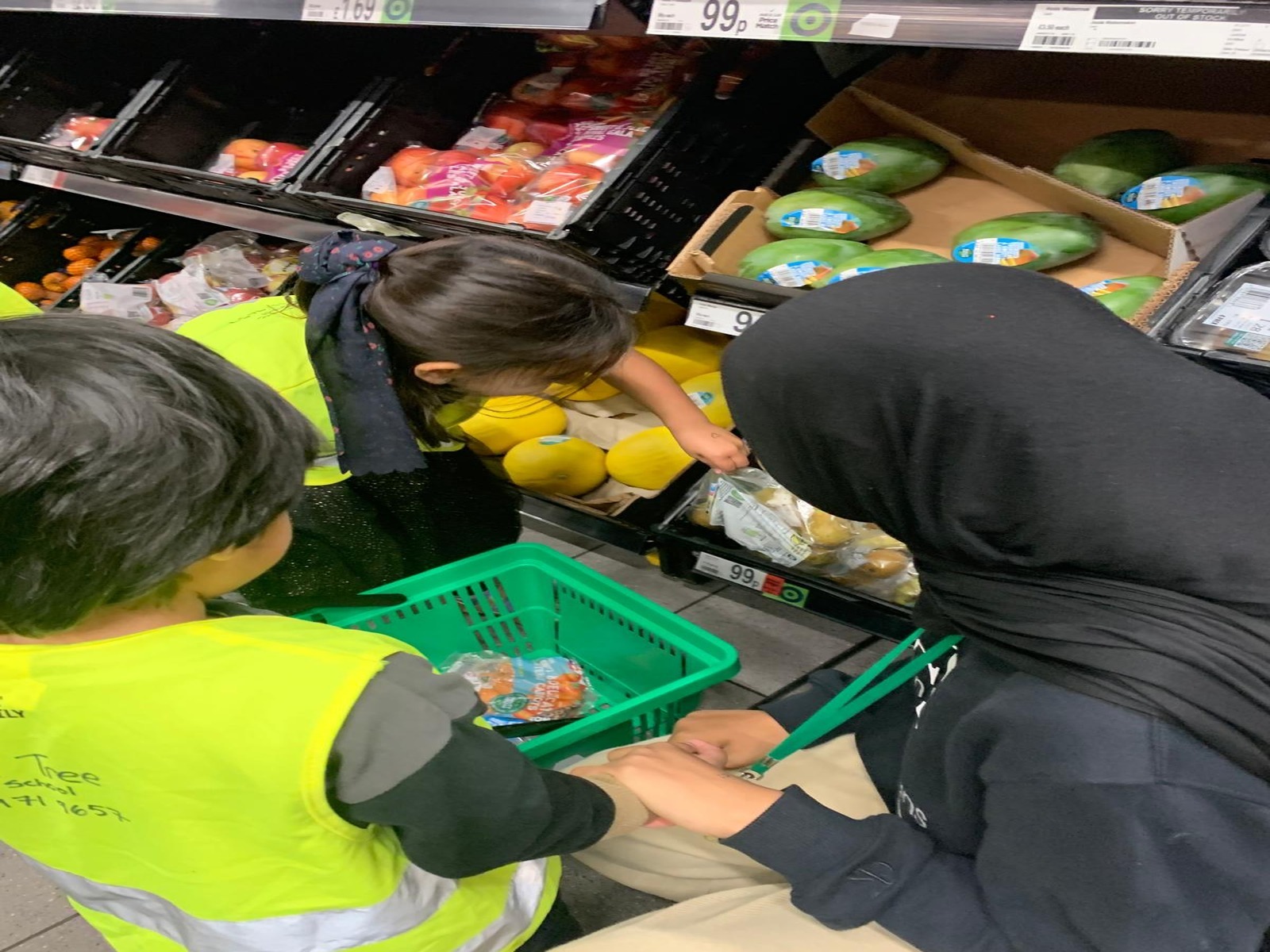
Personal, Social, and Emotional Development is an integral part of the Lote Tree Nursery curriculum. The focus is on helping children build self-confidence, self-regulation, and a sense of independence. They are encouraged to express their emotions, understand their feelings, and recognize the emotions of others. Social interactions are nurtured through group activities where children learn to cooperate, share, and resolve conflicts. Teachers provide a safe and supportive environment where children can develop a strong sense of self-worth, understand boundaries, and practice empathy. Children also learn about making positive relationships and demonstrating good manners, kindness, and respect for others.
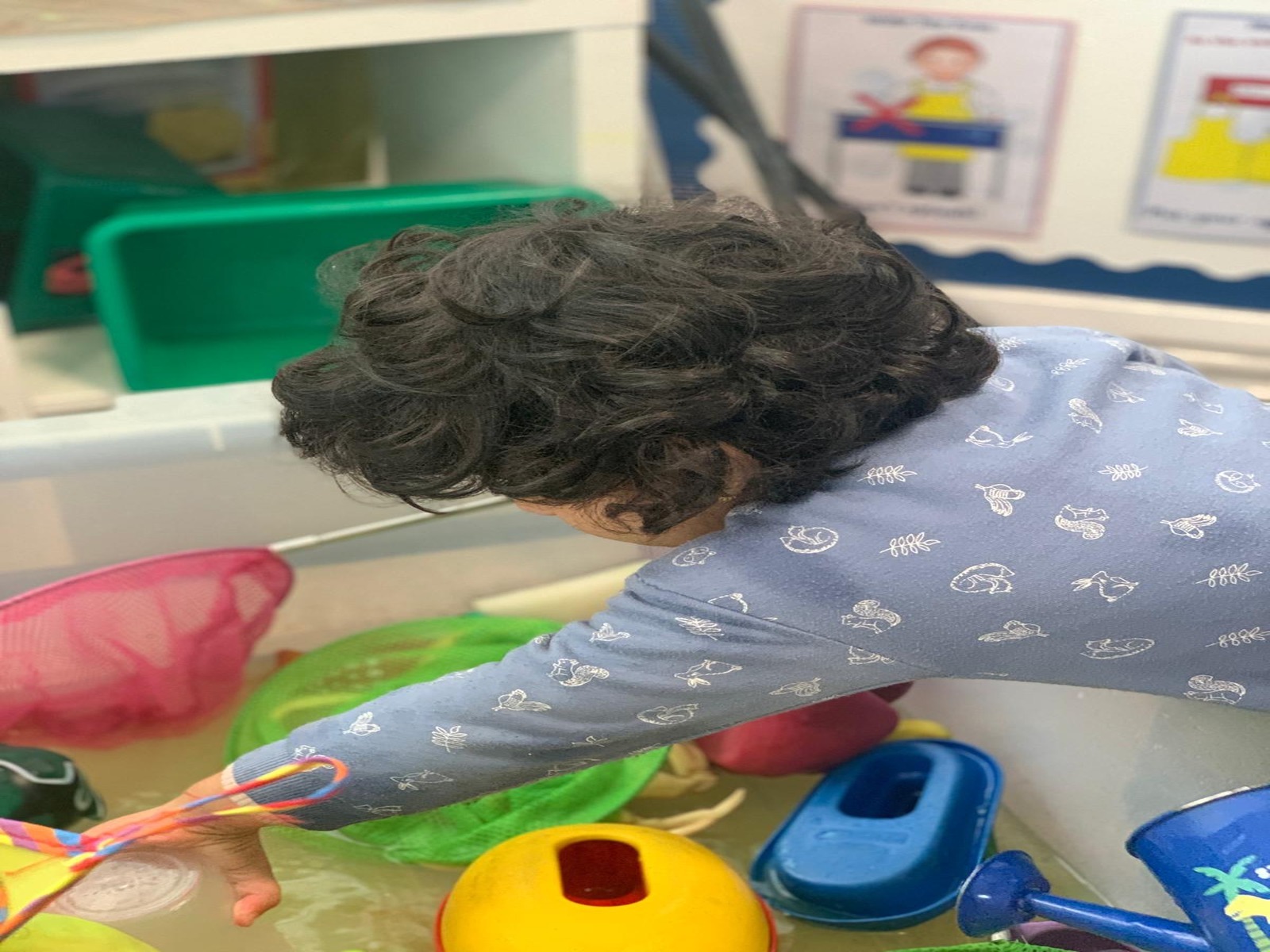
Literacy development is a fundamental aspect of the curriculum, with a focus on both early reading and writing skills. Children are introduced to phonics, letter recognition, and the sounds associated with each letter. Storytelling, rhymes, and nursery songs help children build a love for language and literacy. As they progress, they are encouraged to engage with books through shared reading and individual exploration. Writing activities, such as tracing, drawing, and eventually forming letters, support early literacy skills. The goal is to cultivate early reading habits and ensure children are ready to transition into more formal literacy learning in later stages of their education.
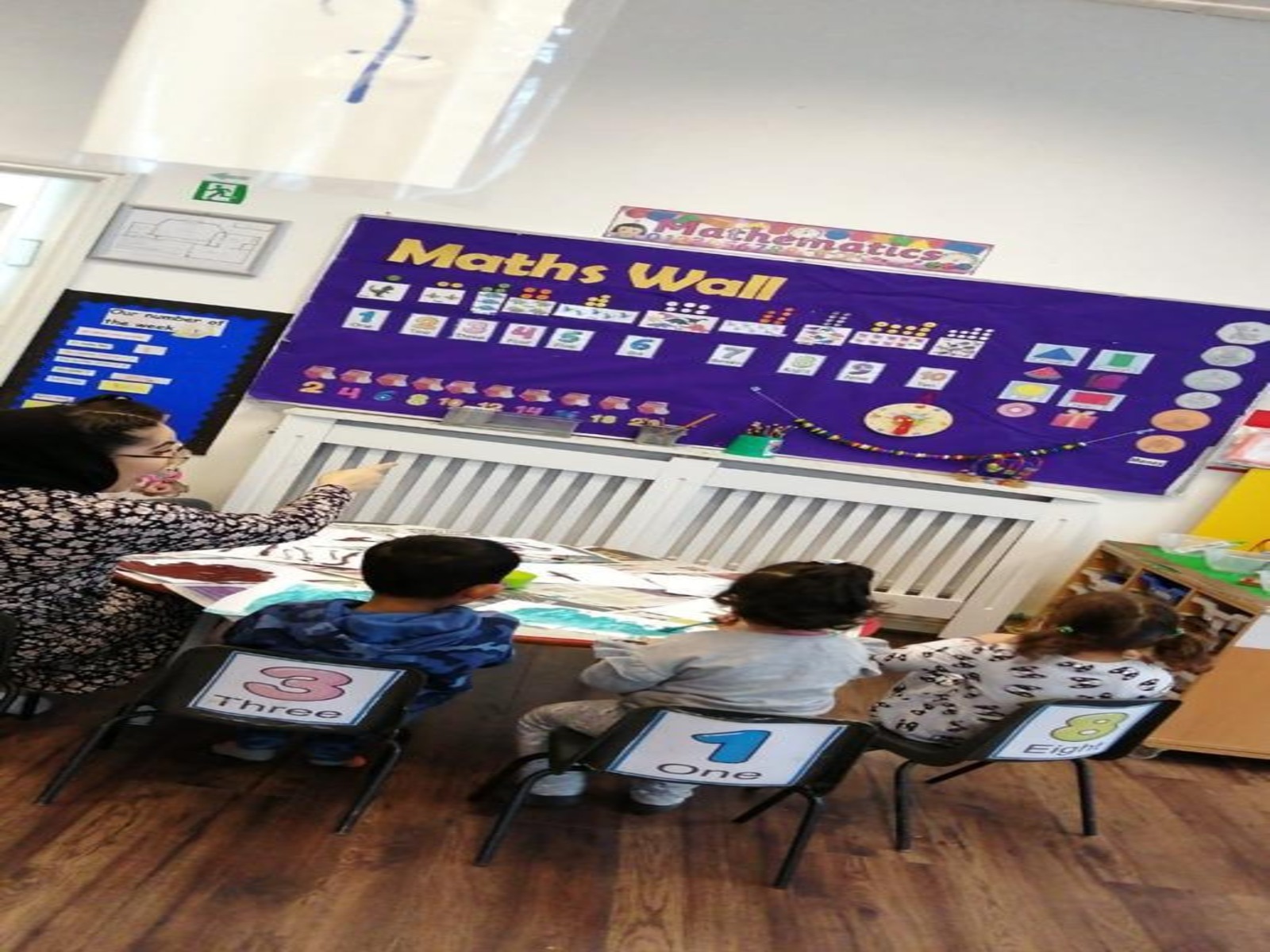
The Mathematics curriculum focuses on developing early mathematical understanding in a playful and engaging way. Children are introduced to basic concepts such as numbers, shapes, size, and patterns through hands-on activities. Counting objects, sorting shapes, and engaging in simple measurement tasks help children develop their numeracy skills. Teachers use everyday experiences, such as cooking or playing with building blocks, to reinforce concepts like addition, subtraction, and spatial awareness. This hands-on approach builds a solid foundation for future mathematical learning, making abstract concepts more tangible and relatable for young children.
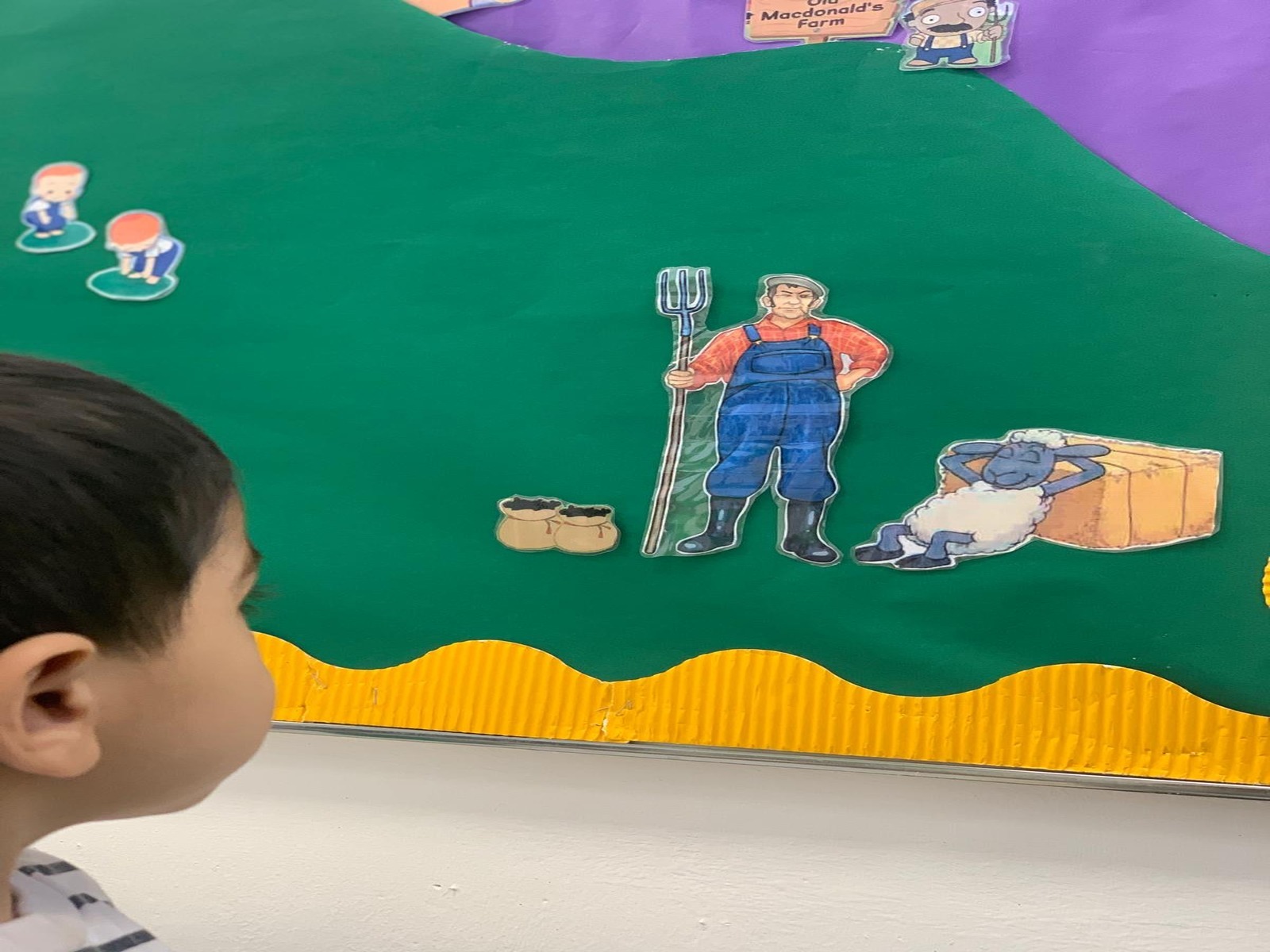
The Understanding the World area helps children develop curiosity and an awareness of the world around them. This includes learning about nature, animals, seasons, and the environment. Children explore their surroundings through outdoor play and sensory activities, investigating and observing the natural world. Simple science experiments, as well as lessons about different cultures, traditions, and technologies, are introduced. Teachers encourage children to ask questions, make discoveries, and explore how the world works through hands-on learning. This area also includes a focus on digital literacy, where children are introduced to basic technological tools in a safe and structured environment.
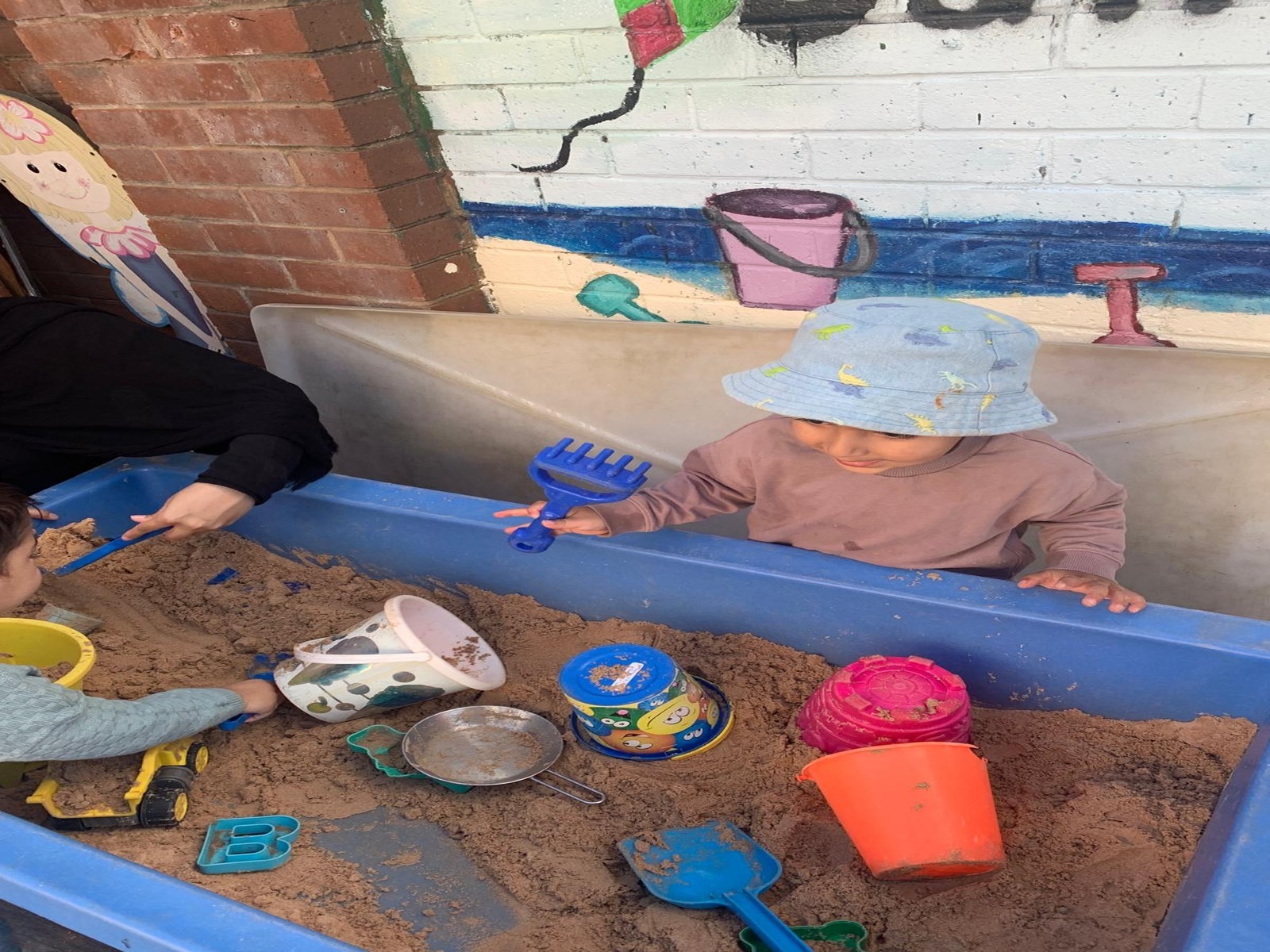 Expressive Arts and Design provides children with opportunities to explore their creativity and imagination. Activities in this area include drawing, painting, modeling with clay, dancing, singing, and dramatic play. Children express themselves through art, music, and movement, gaining confidence in their ability to communicate ideas and emotions creatively. The curriculum encourages children to experiment with different materials and tools, fostering a sense of exploration and self-expression. Whether through crafting or imaginative role play, children develop a deeper understanding of the world and themselves, as well as an appreciation for different forms of artistic expression.
Expressive Arts and Design provides children with opportunities to explore their creativity and imagination. Activities in this area include drawing, painting, modeling with clay, dancing, singing, and dramatic play. Children express themselves through art, music, and movement, gaining confidence in their ability to communicate ideas and emotions creatively. The curriculum encourages children to experiment with different materials and tools, fostering a sense of exploration and self-expression. Whether through crafting or imaginative role play, children develop a deeper understanding of the world and themselves, as well as an appreciation for different forms of artistic expression.
The curriculum at Lote Tree Nursery is designed to foster well-rounded development in young children, with particular emphasis on seven key areas of learning. Each area is carefully crafted to ensure that children grow and develop in a holistic way, promoting their cognitive, emotional, physical, and social well-being.
Prime Areas
- Communication and Language
- Physical Development
- Personal, Social and Emotional Development
Specific Areas
- Literacy
- Maths
- Understanding the world
- Expressive Arts and Design
Research into early child development shows that children learn more rapidly during their first three years than in later life; whilst all areas of learning are important and inter-connected, the three Prime areas that are crucial for children’s learning, building their capacity to learn and form relationships and thrive. The specific areas will enable them to be self-motivated learners who are confident to succeed.
- Physical Development:
- (PSED)
- Literacy
- Mathematics
- Understanding the World
- Expressive Arts and Design

Physical Development is supported through both fine and gross motor activities. The curriculum promotes physical fitness, coordination, and overall well-being by providing opportunities for children to engage in physical play, such as running, jumping, and climbing. Outdoor play is an essential part of the daily schedule, allowing children to strengthen their muscles and develop balance, coordination, and spatial awareness. In addition, activities that improve fine motor skills—such as drawing, cutting, threading, and building with small blocks—are introduced to enhance hand-eye coordination and dexterity.

Personal, Social, and Emotional Development is an integral part of the Lote Tree Nursery curriculum. The focus is on helping children build self-confidence, self-regulation, and a sense of independence. They are encouraged to express their emotions, understand their feelings, and recognize the emotions of others. Social interactions are nurtured through group activities where children learn to cooperate, share, and resolve conflicts. Teachers provide a safe and supportive environment where children can develop a strong sense of self-worth, understand boundaries, and practice empathy. Children also learn about making positive relationships and demonstrating good manners, kindness, and respect for others.

Literacy development is a fundamental aspect of the curriculum, with a focus on both early reading and writing skills. Children are introduced to phonics, letter recognition, and the sounds associated with each letter. Storytelling, rhymes, and nursery songs help children build a love for language and literacy. As they progress, they are encouraged to engage with books through shared reading and individual exploration. Writing activities, such as tracing, drawing, and eventually forming letters, support early literacy skills. The goal is to cultivate early reading habits and ensure children are ready to transition into more formal literacy learning in later stages of their education.

The Mathematics curriculum focuses on developing early mathematical understanding in a playful and engaging way. Children are introduced to basic concepts such as numbers, shapes, size, and patterns through hands-on activities. Counting objects, sorting shapes, and engaging in simple measurement tasks help children develop their numeracy skills. Teachers use everyday experiences, such as cooking or playing with building blocks, to reinforce concepts like addition, subtraction, and spatial awareness. This hands-on approach builds a solid foundation for future mathematical learning, making abstract concepts more tangible and relatable for young children.
 The Understanding the World area helps children develop curiosity and an awareness of the world around them. This includes learning about nature, animals, seasons, and the environment. Children explore their surroundings through outdoor play and sensory activities, investigating and observing the natural world. Simple science experiments, as well as lessons about different cultures, traditions, and technologies, are introduced. Teachers encourage children to ask questions, make discoveries, and explore how the world works through hands-on learning. This area also includes a focus on digital literacy, where children are introduced to basic technological tools in a safe and structured environment.
The Understanding the World area helps children develop curiosity and an awareness of the world around them. This includes learning about nature, animals, seasons, and the environment. Children explore their surroundings through outdoor play and sensory activities, investigating and observing the natural world. Simple science experiments, as well as lessons about different cultures, traditions, and technologies, are introduced. Teachers encourage children to ask questions, make discoveries, and explore how the world works through hands-on learning. This area also includes a focus on digital literacy, where children are introduced to basic technological tools in a safe and structured environment.
 Expressive Arts and Design provides children with opportunities to explore their creativity and imagination. Activities in this area include drawing, painting, modeling with clay, dancing, singing, and dramatic play. Children express themselves through art, music, and movement, gaining confidence in their ability to communicate ideas and emotions creatively. The curriculum encourages children to experiment with different materials and tools, fostering a sense of exploration and self-expression. Whether through crafting or imaginative role play, children develop a deeper understanding of the world and themselves, as well as an appreciation for different forms of artistic expression.
Expressive Arts and Design provides children with opportunities to explore their creativity and imagination. Activities in this area include drawing, painting, modeling with clay, dancing, singing, and dramatic play. Children express themselves through art, music, and movement, gaining confidence in their ability to communicate ideas and emotions creatively. The curriculum encourages children to experiment with different materials and tools, fostering a sense of exploration and self-expression. Whether through crafting or imaginative role play, children develop a deeper understanding of the world and themselves, as well as an appreciation for different forms of artistic expression.
